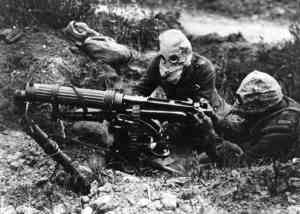I’m developing a new undergraduate course for the fall, one that, in a very real way, can only be taught in the fall of 2014: The First World War in Real Time (A Hundred Years Later). I came to this idea a few months ago after spending, as anyone aware of my social media presence knows, a lot of time reading about the war over the last year or two. The plan is, after starting with The July Crisis and the outbreak of the war, the topics of the course will be dictated by what, exactly, had been happening that same week (roughly) one hundred years before: from Tannenberg and the Battle of the Frontiers to First Marne, from the strains of coalition warfare to the setting of war aims, and from the link between war and diplomacy to the domestic politics of mobilization and popular support. And that’s not even getting into all the alliance politics, logics of preventive war, decisions about war expansion, and the politics of the laws of neutrality, etc. that the course just begins with.
Can you tell I’m excited about this?
You might also notice that I’m posting about it well in advance. Part of the motivation here is to blog about my progress in preparing the course, to share ideas about the war, to work out possible paper topics that come out of it (War and Peace in East Asia, after all, did lead to my latest stuff on the laws of neutrality), and to get used to blogging regularly enough that I can maintain the commitment throughout the semester. So I’m hoping that these posts will be about teaching, research, the link between the two, prepping and developing courses, and, as well, a way to do something useful with my fascination for The Great War. If it works, there are certainly follow-on courses—1915 and the stabilization of the Western Front, 1916 and the Battles of Verdun and the Somme, 1917 with Russian implosion and American intervention, 1918 and war termination…you get the picture.
So I’m embarking on this project a little publicly, and hopefully it won’t just be me promoting a class about a war that most of my friends are probably (and rightly) tired of hearing me go on and on about. Should be fun.

